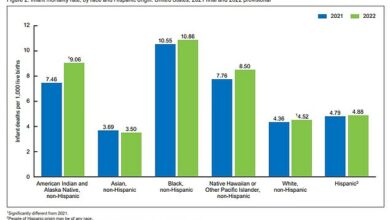California becomes first state to ban foods in schools with ingredients linked to ADHD and cancer
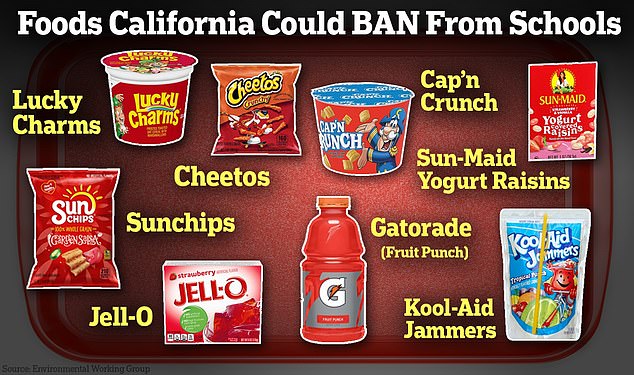
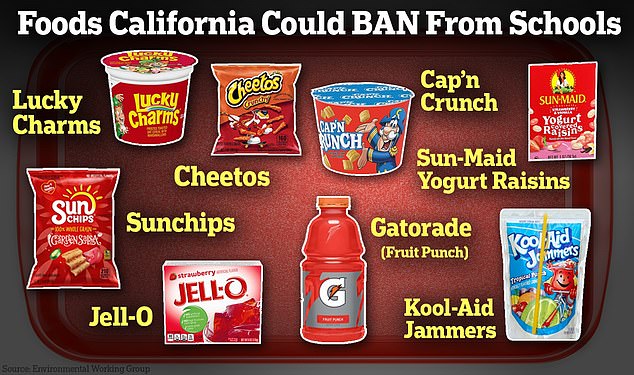
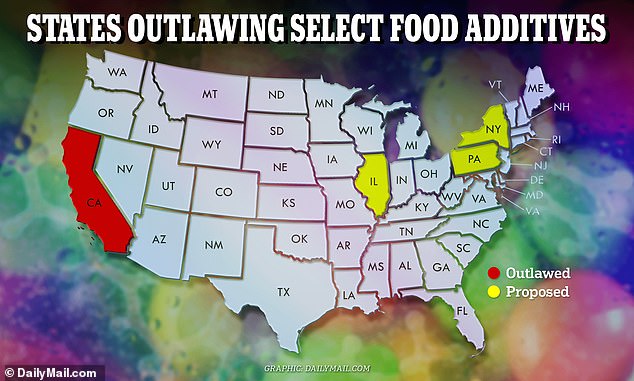
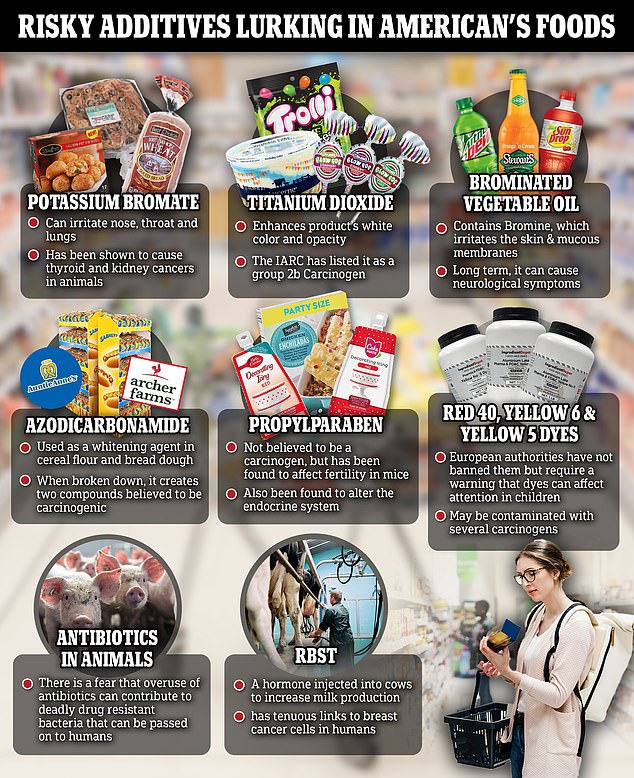
Cheetos, Sunchips and a few raisins may soon be a thing of the past in California’s public schools.
State lawmakers have passed a bill that would ban schools from serving food containing six artificial ingredients that have been linked to low IQ, behavioral problems and cancer.
The bill has now been sent to Governor Gavin Newsom’s desk and, if he signs it, it would take effect in December 2027.
Advocates see the legislation as an important step forward in protecting the health of children in California.
It prohibits foods containing the following additives: red dye No. 40, yellow dye No. 5, yellow dye No. 6, blue dye No. 1, blue dye No. 6 and green dye No. 3.


The ingredients that could be banned are common in ultra-processed foods (UPFs) and have been linked to a number of medical problems.
Red 40, Yellow 5, and Yellow 6 contain benzidene, a human and animal carcinogen that is allowed in low, safe amounts in food colorings and can be found in products like Sour Patch Kids and Lucky Charms.
According to the FDA, taking free benzidine increases the risk of cancer to just below the “concern” threshold, or one case of cancer per 1 million people.
Consumers will find Red 40 in cake frosting, while lovers of baked goods like Twinkies will get a dose of Yellow 5.
Yellow 6 is found in sugary breakfast cereals, including Cap’N Crunch.
Red 40 and Yellow 5 have both been linked to hyperactivity in children. There is concern that these colours may affect learning and cognitive function, and therefore IQ.
Blue dyes 1 and 6 have both been linked to hyperactivity in children, as well as allergic reactions.
Some research also suggests that Blue Dye 1 may cause cancer or organ damage at high doses.
House Democrat Jesse Gabriel, who earlier this year led California’s first ban on other food additives, said, “California has a responsibility to protect its students from chemicals that harm children and can hinder their ability to learn.
“As a legislator, a parent, and someone who struggles with ADHD, I find it unacceptable that we allow schools to serve foods with additives that have been linked to neurobehavioral harm.
“This bill gives schools the power to better protect the health and well-being of our children and encourages manufacturers to stop using these harmful additives.”
The bill received bipartisan support and passed the Senate on Wednesday with 34 votes in favor and four abstentions.
And on Thursday, the bill passed the House of Representatives by 70 votes to nine abstentions.
The bill – AB2316 – was also co-sponsored by watchdogs Environmental Working Group (EWG) and Consumer Reports.
Brian Ronholm, director of food policy at Consumer Reports, said: “Dangerous dyes that put children at greater risk of hyperactivity and other neurobehavioral problems that impair learning should not be used in foods sold in schools.
“By banning these harmful dyes from school foods, we protect the health and well-being of California’s children.”

He added: “Consumer Reports commends Assemblyman Gabriel for introducing this critical food safety legislation and urges Governor Newsom to sign this bipartisan bill.”
The new law would allow California public elementary schools to serve students only fruits, vegetables, dairy, protein or whole grains.
This excludes foods containing these additives and foods where more than 35 percent of the total weight consists of sugars.
The ingredients targeted by the California bill are more tightly regulated in the EU, with some even banned in some countries.
Across the EU, officials require products containing Red 40 to carry a warning label stating: ‘May have an adverse effect on activity and attention in children’.
California is leading the way in banning additives in food, having already banned four cancer-causing food additives in October of last year.
This bans the sale in the state of products containing brominated vegetable oil, potassium bromate, propylparaben, and red dye 3.
The measure affects about 12,000 products and is expected to go into effect in January 2027. Companies could face fines of up to $10,000 if they manufacture, distribute or sell products containing those ingredients in the state.
Experts say the ban could change prescriptions for products across the country because of the size of California’s market, which includes 40 million people, or 10 percent of the U.S. population.


